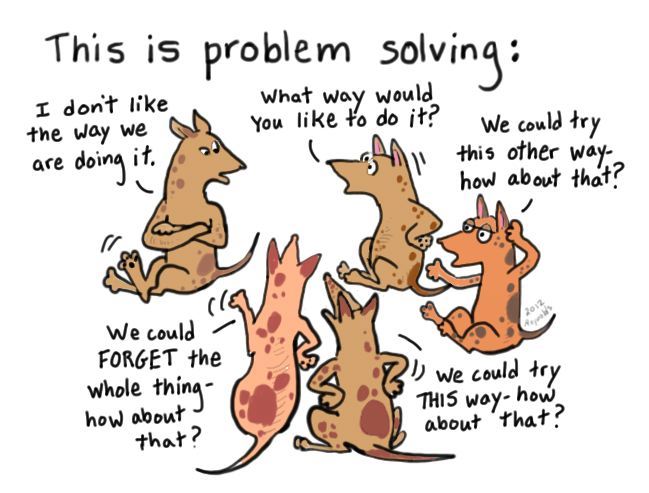What makes a good Leader? by Rich Paschall
With the election cycle in full swing, and the seemingly endless Presidential debates at hand, it is fair to ask what makes a good Leader. What traits do we expect a Leader to have? What do we admire in our leaders? What qualities do we want to avoid in our leaders? What generates our respect and our willingness to follow?
It is not enough to say that our leaders should “lead.” What does that mean exactly? In a certain sense they all want to lead, but where are they trying to take us? What message is their leadership style sending? Are they willing to lead us in a good way?
It is also not enough to say that they should “inspire.” What does that mean as well? If they inspire you, I guess you would, of course, want to follow. Not all inspiration is filled with positive messages or moves in the right direction. Will we know a good leader when one comes along?
Perhaps at the top of my list would be “trustworthy.” Can we trust someone to do a good job? Will they always look out for the best interests of the nation, the community, the local parish or whatever group they are asked to lead? This trait speaks to the virtue of honesty. If we trust someone, then we must believe deep down that they are honest. They will not steal or take advantage of their position. They will not use their position of authority to enrich themselves at the expense of others. Do you trust your leaders?
A good leader must also be a “problem solver.” Every organization will have it challenges along the way and the solutions are not necessarily apparent. This is where a good problem solver is important.
 It is not that the leader needs to solve the problem himself or herself, it is that they must know the best way to get to the answers that are being sought. In this regard, leadership might be stepping aside to let someone else step in to handle an issue.
It is not that the leader needs to solve the problem himself or herself, it is that they must know the best way to get to the answers that are being sought. In this regard, leadership might be stepping aside to let someone else step in to handle an issue.
To lead a person must also be self-confident. In this manner some may come across as cocky or arrogant, which could indeed be the case. However, one who lacks confidence in what he does can never be a good leader. Indecision will creep in as the dominant trait. Then the leader will find himself following others, falling prey to advice that may not be in the best interests of all.

Which way is your Leader going?
Passion is important for those at the top of an organization. I have seen it often at the local level where leaders either do not feel passionate about what they do, or have lost that passion as the years wore on.
Just because you are a good leader in one decade, doesn’t mean that you will be a good leader in the next. Our diocese has a habit of moving successful pastors from one location to another, but success in one place doesn’t mean success at another. Sometimes a problem arises when the so-called leader does not share the same passion for the next assignment as he did for the previous one.
Leaders must be resilient. They must have the ability to “roll with the punches,” as the saying goes. Some do not take real or perceived criticism well. Their downside begins to show when their side of things indeed seems to be down.
One thing for sure — a leader will face criticism. Not all will agree with everything that is said or done. It’s inevitable. A new leader may enjoy a “honeymoon” period of no criticism, but it won’t last. If you’re President of the United States, it will be brief indeed.
A leader needs vision. He or she must have a clear idea of what it is they should do and how they’ll get there. Again, this doesn’t mean the leader has to do it all. A leader with vision will inspire others to work hard to help a vision become reality. If your vision doesn’t inspire others, you may need to rethink it.
A leader must effectively manage others, especially subordinates in the work place. This means training, coaching, guiding and building up the resources of the organization, town, state, or country through hard work and careful planning. “My way or the Highway” is not an effective leadership style, although I have seen some try to use it on the local level. It is not what any organization needs and in fact tends to drive away good people.
Problems should be seen as fixable, not something to avoid at all costs. Some so-called leaders would choose the path of least resistance. If they avoid something where there might be even the slight chance of failure or disappointment, they are not leading at all. This is like the “prevent defense” in football. Sometimes that prevents you from winning.
A good leader also is a good listener. I’m sure you’ve heard “no one learns anything new when he’s talking.” A leader knows when and how to listen. A leader knows which questions to ask to get the information to understand the issues and seek the right course of action.
Recently I sat down with a local pastor to discussion an event that he felt did not go well in every aspect. At least I thought it was going to be a discussion. Instead it was an unpleasant hour listening to his negative point of view of certain aspects of the event. I’m not sure he listened to anything I said. He could just as well have had the conversation over coffee with himself. I’m not sure why I bothered to talk at all.
Are your leaders listening? Do they care what you think? Will they serve your interests? As local and national elections near, what traits should your elected officials have? As you join community organizations, what traits do you want to see in their leadership?
Categories: Government, reflection, Rich Paschall



This is an excellent piece on leadership! I believe that a most important trait of a good leader is the ability and willingness to listen. A leader is a guide more than anything — taking into account the views of others and nudging them into action that will account for the best interest of each of them.
A good leader is positive; he does NOT criticize everything and everybody, but encourages each in the way that brings out their best; a good leader makes others feel good about themselves and ideas, and combines the ideas of all into a single positive direction. A leader coaches, teaches, and guides people into teams that can accomplish the desired results, then makes clear decisions and directions to meet those results.
LikeLiked by 2 people
I could not agree with you more. Good leaders are hard to find.
LikeLike
Reblogged this on Sunday Night Blog and commented:
Last year this appeared on SERENDIPITY. Following the elections and light of what you see every day, perhaps you are wondering about the leadership qualities of certain people. Time to think about this again.
LikeLike
Many of you are well aware of the fact that great leaders complicate leadership development. It might seem paradoxical to you but going through it thoroughly can make you understand how its major elements work together.
LikeLiked by 1 person
I think you might need to explain this a bit more. That’s just a tad cryptic for me.
LikeLiked by 1 person
Me too.
LikeLike
Do you think Americans will watch the State of the Union tonight and envision Donald Trump giving that speech next year? It makes me shudder to think about it. 🙂
LikeLiked by 1 person
OMG
LikeLike
All I can say is that should Trump REALLY win, we deserve him. Because that would mean an awful lot of people voted for him.
LikeLike
Charisma is also a negative aspect. This means that a bad leader will get in power based on his charisma – then everyone finds out that he/she is really, really bad.
LikeLiked by 1 person
Yes, but without charisma it is hard to get elected or an appointment.
LikeLiked by 2 people
Good, cogent piece, Rich. I can tell you from experience covering races national, state and local, charisma is nice but you need some substance behind it. I love the last scene in Robert Redford’s “The Candidate”. That’s where Redford, just elected Senator asks his campaign manager (Peter Boyle), “Okay, what do we do now?”.
Tip O’Neill was perhaps my favorite pol.
He used to tell me stories about brokering deals on both sides of the aisle in Congress. He told me about Presidents who understood and those who didn’t get it.
It’s hard to see any pros or naturals in the game today.
LikeLiked by 1 person
Nope, there are no Tip O’Neills in Congress or on the horizon.
LikeLiked by 1 person
Sadly, no!
LikeLike
I hope the Senate and Congress will also cooperate with who gets elected. I was ashamed of how our country and those in elected positions were not compromising with the ones who supported President Barack Obama. So, now you know where I stand. Some of my sister in law and brother who are professors at northern Ohio universities, also felt their votes were “wasted.” I pray for cooperation and compromise in a moderate president. Believe it or not, I could go with Kasich, Clinton or Sanders. They appear disparate but they at least know how to “crossover” to the opposition. Sincerely, Robin
LikeLiked by 1 person
Cooperation is definitely one of those qualities we should include.
LikeLike
I would think a good leader would not lose touch with what is going on with the people. Hopefully, they would have a vision for a future that doesn’t eviscerate the economy and the majority of the people would benefit. They would consult with experts in the field and deligate some of the decisions to others who would offer a better approach to issues.
Leslie
LikeLiked by 2 people
That would be ideal. So who will benefit the majority rather than the super rich and themselves?
LikeLiked by 1 person
A saint perhaps? No, a very wise person who would be more concerned about their legacy at the beginning of their term than at the end.
Leslie
LikeLiked by 1 person
If you are not facing re-election, you may not care about pleasing everyone. If you want re-election, you may avoid controversy.
LikeLiked by 1 person
At some point the leaders start to think about how they are going to be perceived in the history books. We need long term thinkers and visionary doers. It seems like a mad scramble at the end of any reign to polish up a decent legacy.
Leslie
LikeLiked by 1 person